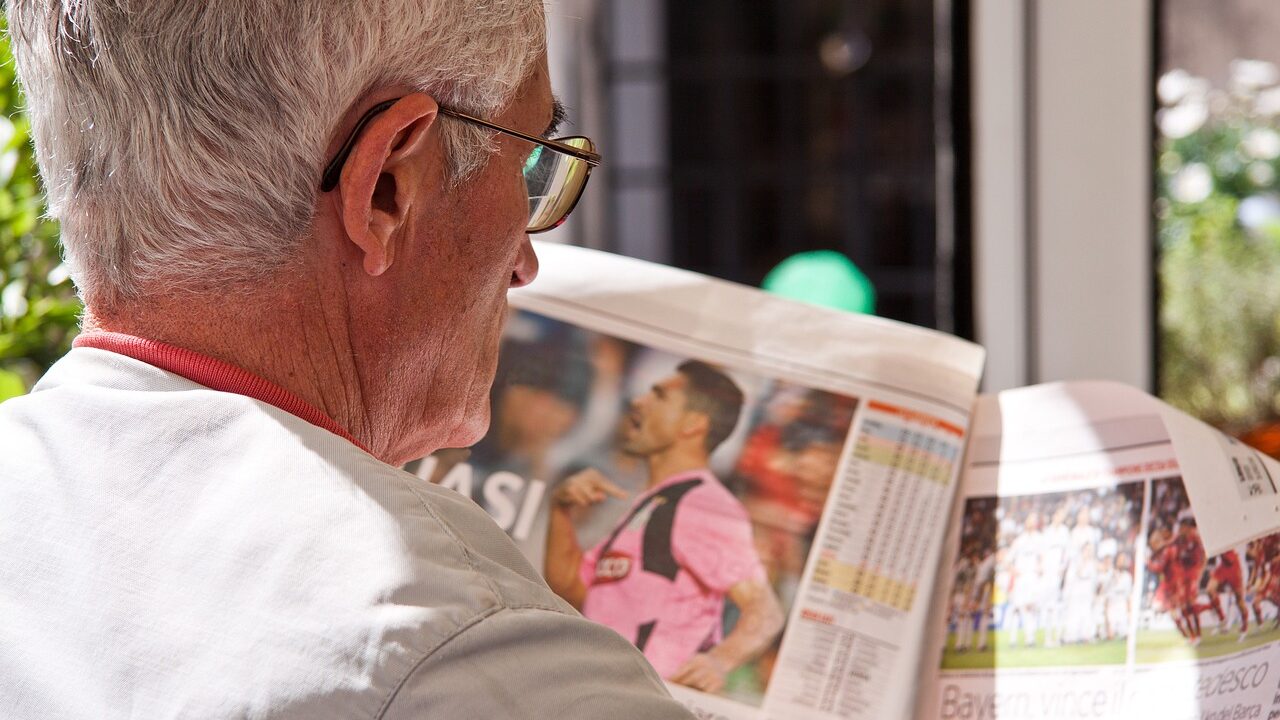ライフハックとしてではなく、英語学習にも極めて有用なのが、著名人が10分程度のプレゼンを行うTEDです。
TED Talksとは、あらゆる分野のエキスパートたちによるプレゼンテーションを無料で視聴できる動画配信サービスのことです。10年ほど前にサービスが開始されてから、政治、心理学、経済、日常生活などの幅広いコンテンツが視聴できることから人気を集めています。
RareJob English Lab
TEDは4000を超える膨大な数の動画があります。しかし慣れないうちは、動画の探し方や視聴のコツが分かりませんよね。この記事では、数多くのTEDを見てきた管理人(塩@saltandshio)が、心を揺さぶられたトークをあらすじと一緒にご紹介します。
ビジネス英会話を効率よく身につけたい方におすすめスクール
シェーン英会話
シェーンは1977年の創業以来、ネイティブ講師が英語を英語で教える「直接教授法」を採用しています。首都圏におけるスクール拠点数は、ネイティブ講師の英会話スクールでNo.1。駅から近いスクールが多いので通いやすく時間を有効に使えます。
スピークバディ パーソナルコーチング
1日1時間の短期集中トレーニングで、あなたの英語力向上をコーチが全力でサポートします。あなたの英語の世界が、劇的に変わります。
世界観を知ると人は変わる:アン・クレシーニ
アン・クレシーニは福岡県に拠点を置くスピーカー・作家・教師・ブロガー。日本で暮らすようになって17年(2018年現在)。そのなかで感じた、その国や地域の事を本当の意味で理解するというのはどういうことかについて、小気味よいトークで語ります(約12分)。
[PR]無料体験レッスン実施中!全国208校、創業40年の老舗英会話スクール【シェーン英会話】郷に入っては郷に従えを痛感する
アン・クレシーニは、自分のことを典型的なアメリカの田舎者といいます。なぜなら、大学生になるまで本当の魚と米は一回も食べたことがなく、初めて飛行機に乗ったのも大学を卒業した後だったからです。そのため、23歳で日本に来た時は、まったくといっていいほど日本のことを知りませんでした。
さらに、彼氏から「日本語を勉強しないといけないよ」という忠告を受けても、「日本に住むだけでなんとかなる」と取り合いませんでした。そんなアン・クレシーニでしたが、来日してから4カ月経った時の事、日本語をきちんと覚えなければと痛感する出来事が起きました。
ホームスティ先からマンションに引っ越すことになったときに、隣の人に日本人らしく洗剤を持ってあいさつしに行ったのですがに、扉の向こうから聞こえた「誰ですか?」という質問にまともな返事が出来なかったのです。
一生懸命に大事なフレーズ、「つまらないものですが」を練習したけど、こういう質問に答えられんかったなあ。
しばらく考えた後、「外人です」って答えた。
I worked hard memorizing the phrase, “Sorry for this insignificant gift,” but I had no idea how to answer this question.
I thought for a minute before responding, I answered “The foreigner.”
このやりとりのあと、アン・クレシーニは日本語を学ぶ必要性を強く感じます。2005年には日本語能力試験の一級を取り、その後は日本の産婦人科で3人の子供を産み、日本にまつわる本まで書きました。そのうちアン・クレシーニは、自分は日本のことをよく知る専門家になったと思うようになりました。
ですが、それは大きな勘違いでした。
[PR]まずは無料カウンセリング”続けるため”の オンライン英語コーチ「スピークバディ パーソナルコーチング」ちゃんとその国の言葉と文化を身に着けた!という過信
2016年に、アン・クレシーニは後に親友となる満貴子さんに出会います。満貴子さんは仏教を信じている京都人、アン・クレシーニはキリスト教を信じているアメリカの田舎者という、接点のほとんどない二人でした。しかし、それを乗り越えて二人はとても仲の良い友達になります。
ですが、なぜか二人は文化の違いでよく衝突しました。そのたびに、アン・クレシーニは疑問に思いました。自分は日本の文化を知っているはずなのに、なぜ満貴子さんとぶつかってしまうのだろうと。ある日、その答えがわかります。
満貴子さんは、アン・クレシーニのことを知ろうと、なんと図書館に行ってキリスト教の勉強を一生懸命してくれていました。それに対して、自分は満貴子さんの仏教についてまったく学ぼうとしていなかったのです。
私には同じような心が無かったです。
私は満貴子が大事にしている事に、全然興味がなかった。
I didn’t have that same humble heart.
I wasn’t interested at all in the things that were important to Makiko.
このことに気が付いたアン・クレシーニは、自身を深く反省します。それから、日本文化のことをきちんと知ろうと、満貴子さんと一緒に神社お寺に行くようになり、夜中まで日本の歴史について満貴子さんと話すようになりました。
しかし、一番の大きな変化は料理するようになった事でした。なぜなら、アン・クレシーニは大の料理嫌いだったからです。
[PR]知って得する、知らないと損をする!すぐに役立つ相手に合った「伝え方」のコツ!まったく、その国の言葉と文化を知らなかった!
料理嫌いのアン・クレシーニに対して、親友の満貴子さんは大の料理好きでした。満貴子さんをより深く知りたいと思ったアン・クレシーニは、彼女から料理を教えてもらうようになりました。努力の甲斐あって、来日16年目にしてアン・クレシーニはようやく味噌汁を自分で作れるようになりました。
料理を一緒に作る中で、アン・クレシーニは日本の食文化についても満貴子さんから学びます。彼女と会話をしているうちに、アン・クレシーニは日本文化の表面しか知らなかったことを痛感します。長く日本に暮らしていたにも関わらず、日本の深いところや、理解しずらいところを、ずっと理解しようとしてこなかった自分に気が付いたのです。
それは、『日本の心』ともいえるもので、日本の『世界観』でした。
簡単に言うと、「世界観」とは人間がどういう目でこの世界を見るかという事です。
家に例えると、文化はその家の見える部分。屋根、壁、家具とか。でも その下には見えない土台があります。それは「世界観」。この「世界観」の土台がないと、家を建てることができません。
To put it simply, worldview expresses how humans see the world.
If you compare them to a house, ulture is the visible part of the house. For example, the roof, the walls and the furniture. But there is a foundation under the house that you can’t see. That is worldview. Without the foundation of worldview, you cannot build the house of culture.
日本では赤ちゃんと一緒に寝る習慣がありますが、アメリカにはありません。それは互いの「文化」の違いでもあります。“なぜ”一緒に寝るのか、寝ないのか。その“なぜ”をしらなければ、「文化」の“なに?”を理解することが出来ないと、食事を作ることを通してアン・クレシーニは学んだのです。
[PR]しちだの魔法ペンなら35日でバイリンガルに!楽天4部門1位の英会話!<七田式>大事なのは相手を知ることより理解しようとする気持ち
さらに、食べ物が絡んだある出来事から、アン・クレシーニは文化をより深く知ることになります。きっかけは、アン・クレシーニが運動会でおにぎりを三分の一くらい残したことでした。その時のアン・クレシーニの気持ちは『食べたほうがいいとわかったが、食べたくないからいらない』というものでした。
おにぎりを残したことに対して、アン・クレシーニは友人から相当嫌な顔をされます。ですが、その理由がわかりません。帰宅したあと、SNSで友人から「アンちゃん、罪悪感ないの?食べ物大事にしないの?」と質問されても、アン・クレシーニにはなぜそんな重い話になるのかまったくわかりませんでした。しかし、一時間にも及ぶやりとりから、ようやくアン・クレシーニはその理由を知ることになりました。
結論から言うと、アン・クレシーニは日本の食文化の「世界観」を理解していなかったのです。
「いただきます」は「Let’s eat」じゃなかろ?「いただきます」は「命を頂きます」。命を捧げてくれた動物と植物に、ありがとうって気持ちを表す表現です。
Itadakimasu is not “Let’s eat” at all, is it? Itadikimasu means
that you are partaking of life. You are saying thank you to the animals and plants that gave up their lives for you.
それだけではありません。『いただきます』は、食べ物を作った人、獲った人、運んだ人、調理してくれた人に感謝を表す言葉であること。食べ物が作られる最初から口に届くまでに多くの人が携わっており、食べ物を粗末にすることはそれらの人々の努力を無にする行為であること。だから、友人は自分に対して怒っていたのだとアン・クレシーニはようやく理解したのです。
[PR]しちだの魔法ペンなら35日でバイリンガルに!楽天4部門1位の英会話!<七田式>まとめ:成長とはお互いを理解しようとする心
それまでのアン・クレシーニは食べ物を大切にする人ではありませんでした。しかし、食べ物を大切にするという世界観を知ってから、食べ物との関係が大きく変わりました。好き嫌いが激しく、25年間摂食障害だった彼女が、それから一年の間に何でも食べられるようになり、おせち料理まで作れるようになったのです。
外国語を学んだり、海外に旅行する人に向けて、アン・クレシーニはこんなアドバイスを送ります。
言葉と文化を理解する事だけで満足しないで下さい。それよりも深い所 「世界観」を理解しようとしたら人生は豊かになります。
Please don’t be content with only understanding language and culture. If you seek to understand at a deeper level, the worldview, your life will be much more fulfilling.
しかし、海外に行かない人でも『世界観』を知ることで、人生を豊かにすることはできます。あなたの上司、友達、同僚、親、配偶者、そして子供。それぞれが自分の『世界観』を持って生きています。彼らを理解しようとすれば、同じように人生は豊かになるでしょう。
ここまで『世界観』について話してきたアン・クレシーニですが、一番身近にいる反抗期中の娘を理解しようとしてこなかったことに唐突に気が付き、反省します。これからは娘に興味を持ち、娘が大事にしていることを理解し、一緒に過ごそうと決意したことを観客に向けて宣言します。
あなたも似たような自分の過ちに気が付けたら、大丈夫です。他人は変えられなくても、これからの自分はいくらでも変えていけるのですから。
英語全文
I have never even done a presentation like this in English before, but for some reason, I decided to do this one in Japanese.
I’ll do my best.
<全文を読む>▼クリック▼
Four months after I came to Japan, I moved from my host family’s house to my own apartment. Since I live here, I took some dish soap when I introduced myself and take it as a gift to my neighbors like a Japanese. When I knocked on the door, a voice from inside said, “Who is it?” I thought “Oh great. ” I worked hard memorizing the phrase, “Sorry for this insignificant gift,” but I had no idea how to answer this question.
I thought for a minute before responding, I answered “The foreigner.”
She came out to greet me with a smile and I gave her the dish soap, I then quickly returned to my boyfriend’s house and looked up the word “neighbor” in the dictionary. That was the first day I realized, “I really do have to study Japanese.” At that time, I was like this.
I was wearing the frame of Japan but I couldn’t see anything. But from that day, I committed myself to studying Japanese. In 2005, I passed Level One of the Japanese Language Proficiency Exam. I though that now I can put the lens of language in my glasses. I can see Japan a little bit better now. At the same time, I tried to adapt to Japanese culture. I had my three kids at a Japanese maternity clinic, and sent them all to Japanese schools. I also wrote several books about Japan. “Well, I have written books about Japan, so that must make me an expert.” So I put the lens of culture in my glasses, too. Because I now had both the lenses of language and culture in my glasses, I thought that I could see all that Japan was.
But about a year and a half ago, I realized I really couldn’t see much at all. It was then that I met my best friend, Makiko. We are absolutely nothing alike. Makiko is a Buddhist from Kyoto. I am a Christian from rural America. We have very little in common, but somehow, we overcame our differences and became the best of friends.
Yet, we often clashed over culture on issues such as raising kids and food. If I was such an expert on Japanese culture. I just couldn’t understand why we clashed like this. But one day, the answer came to me. Makiko was diligently studying Christianity. Why? Because she cared so much about me, she desperately wanted to understand the faith that was so important to me. She went with me to church and checked out books from the library about Christianity. She studied hard.
I was really happy she was doing that, but one day, I had a life-changing realization. I didn’t have that same humble heart. I wasn’t interested at all in the things that were important to Makiko. I felt deep regret, and made a decision that day to change. After that, I went with her to temples and shrines, and we talked late into the night about Japanese history.
But the thing that had more impact on my life than anything was cooking with Makiko. Everyone around me knows just how much I used to hate to cook. In fact, I am famous for it. So when I told my longtime friends that Makiko was teaching me to cook, I thought they were going to faint. To be honest, I wasn’t really all that interested in it. I knew that Makiko liked to cook, and I wanted to spend time with her. But little by little, I actually learned how to make things, and last year I made miso soup for the first time.
Isn’t that hilarious?
I had lived in Japan for 16 years, and just last year I learned to make miso soup. Up until then, I ate that instant stuff. As we cooked together, we talked deeply about Japanese food culture. Through those conversations, realized something important. Up until now, I had only understood the surface of Japanese culture. I had made no effort to understand the deeper things, things that I couldn’t grasp or didn’t agree with.
But you know what?
Those are the most important things.
That is the heart of Japan.
That is the Japanese worldview.
So, what exactly is worldview?
I mean, it is not exactly a word that pops up often in daily life. There are probably people in this room that have never even said the word “worldview” once in their lives. So, let’s say it together now, “1-2-3 WORLDVIEW!” “WORLDVIEW!” Good! Now you have said it once in your lives.
To put it simply, worldview expresses how humans see the world. Human thought patterns and actions, and a country’s culture are all born out of worldview. But there are probably still people who are still unclear about what the difference between culture and worldview, so let me explain it in more detail. If you compare them to a house, culture is the visible part of the house. For example, the roof, the walls and the furniture. But there is a foundation under the house that you can’t see. That is worldview. Without the foundation of worldview, you cannot build the house of culture.
Let me give you another example. Japanese people have a custom of sleeping with their children. That is culture. But why do they do that? Why don’t Americans sleep with their children? That is worldview. If you don’t understand the “why” of “worldview” you can’t understand the “what” of culture.
I realized that I was wearing my glasses all wrong. It’s not that language fits in one lens and culture the other. Language and culture are both in the same lens. I must put it into the left side. The other lens is worldview, I must put it into the right side. Without the worldview lens you cannot see everything clearly.
Let’s go back to talking about food.
Last May, I went to a sports festival and ate lunch with my friend. I didn’t finish my rice ball. left about a third of it. I realized that I should eat it, but it didn’t bother me all that much. But my friend gave me a look. When I got home, I went back and forth with her on Facebook for an hour about that wasted rice ball.
An hour!
This is what she said to me. “Anne-chan, don’t you feel guilty? Don’t you value food?” I was perplexed. I mean, it was just a rice ball. I don’t get it! I couldn’t understand her at all But the reason that I didn’t get it was that I didn’t grasp the Japanese worldview regarding food.
So, let’s think about the word itadakimasu.Saying itadakimasu before meals is Japanese culture. I got that. But why do they say itadakimasu? That is worldview. I never really understood that. As a result, I always translated itadakimasu as “Let’s eat!”
But think about it.
Itadakimasu is not “Let’s eat” at all, is it? Itadikimasu means that you are partaking of life. You are saying thank you to the animals and plants that gave up their lives for you. But not only that- you are also expressing gratitude to those who planted it, harvested it, transported it, and prepared it. In other words, thanks to the hard work and cooperation of everyone and everything involved in the process of making food, we have the privilege of eating. We must value that privilege. And that includes not wasting a third of a rice ball. All of that is included in that one simple word of itadikimasu.
I never really understood that, so to be honest, I was not a person who valued food. I bought it, cooked it, and threw it away without really thinking. But not anymore. I don’t have the same worldview as most Japanese people. But valuing food is something that you should do regardless of your way of thinking or worldview.
When I realized this, it changed my relationship with food.
Up until now, there were so many foods I disliked, but now I can eat anything. Up until now, I hated fish, but now I can gut them. Up until now, I couldn’t even make miso soup. But last year I made complex New Year’s dishes.
Amazing, right?
But my greatest accomplishment of all is that I have overcome an eating disorder that I struggled with for 25 years. How is it that I was able to grow so much in only a year? Because I now have a heart that seeks to understand the Japanese worldview.
I have something that I want to say to you. Maybe you are studying a foreign language. Maybe you have the opportunity to go abroad. Please don’t be content with only understanding language and culture. If you seek to understand at a deeper level, the worldview, your life will be much more fulfilling.
But you know what?
You don’t even have to leave Japan.
You are surrounded by people whose worldview is different from yours. Your boss. Friend. Co-worker. Mother. Wife, Child. I have a question for employees. Do you make an effort to understand your boss? Husbands, do you know what is important to your wives? Or are you thinking that your views are way too different, so you give up without ever understanding?
As I was preparing this presentation, I made a shocking realization.
I was trying desperately to understand the Japanese worldview, yet I was making no effort at all to understand my rebellious daughter. I wasn’t interested in what was important to her. Once again, I was filled with regret. Once again, I made a decision. From that point on, I was going to make an effort to understand her. I would spend more time with her and listen to her. So, I want to challenge you to stop and think if maybe there are people around you like her.
In order to grow, humans must always have a reflective and repentant heart. That’s very important. My favorite slogan is from Eric Berne. “You cannot change others or the past. You can change yourself and the future.” Let’s think about this, and seek to grow as humans, and let’s try to really understand each other.
Thank you very much.
<閉じる>
\ ほかにも気になるトークが満載! /








